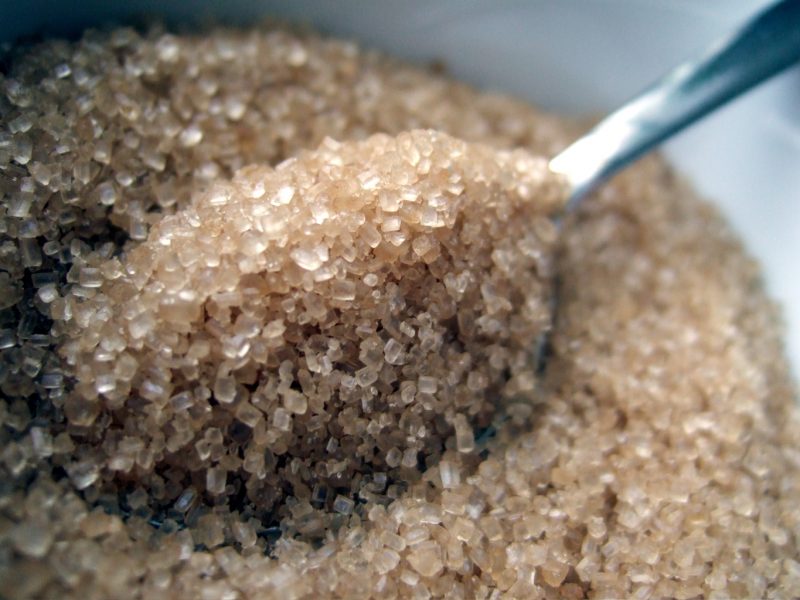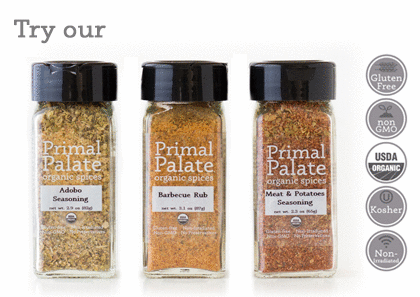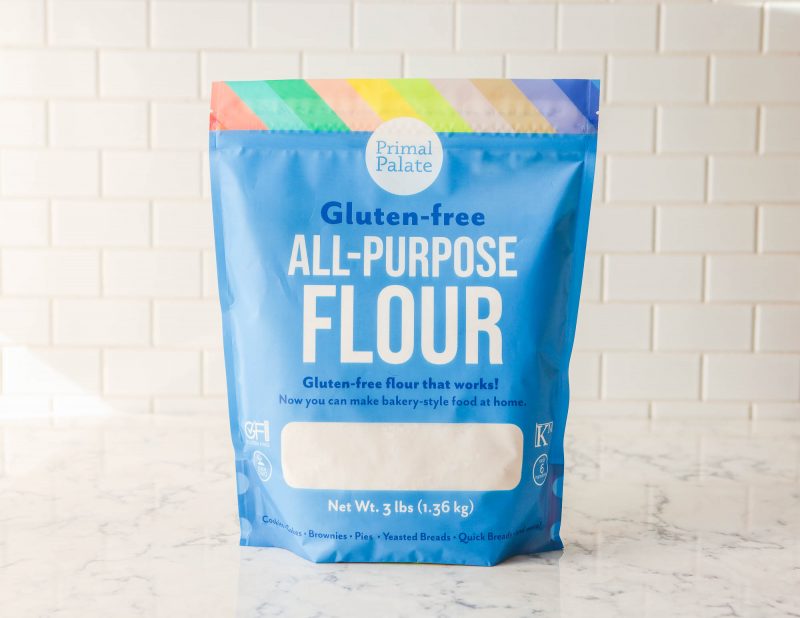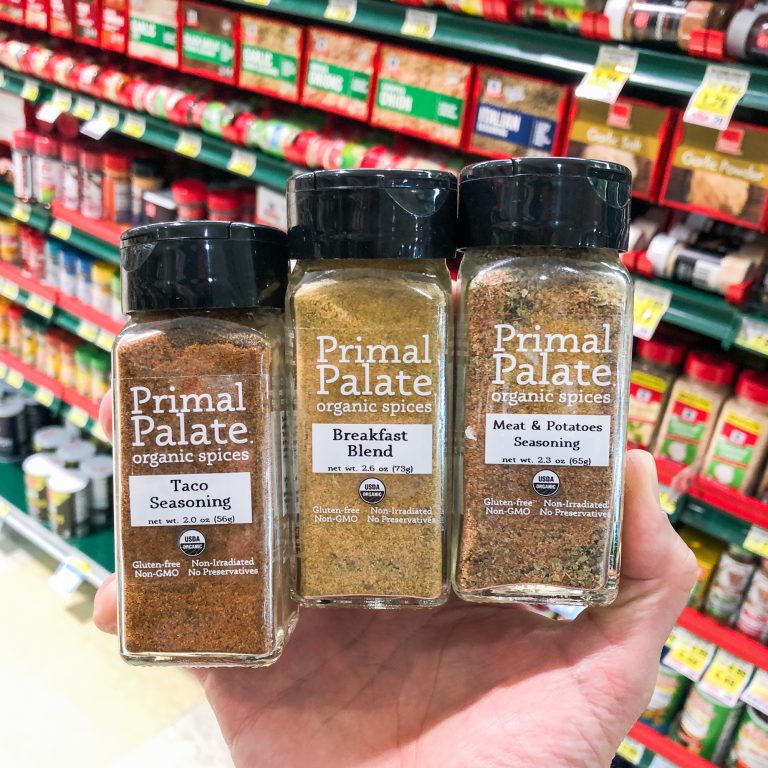Hey friends!
Today we have a guest post from our trusted colleagues and good friends: Alex Golden from DIG Primal and Megan Rand from Ginger Newtrition. They wanted to share this awesome post about natural tools and techniques you can use to regulate your blood sugar. It’s really interesting to read about these types of mechanisms in the body, and how a few simple things can influence them to work for the better. Maybe you, or someone you know, are having problems with blood sugar regulation, so feel free to pass this post along. And don’t miss the free quiz near the bottom of the post.
-Hayley & Bill

The topic of blood sugar regulation is popular on the internet. It is no surprise that the topic is often discussed since diabetes is a major cause of morbidity and mortality, as well as a significant financial burden, in the United States. But being diabetic or pre-diabetic is not the only reason to be concerned with your blood sugar levels. Blood sugar regulation issues are associated with a variety of health conditions—mainly hormonal and gut imbalances—that also contribute heavily to the poor health of the general population.
What’s more is that not everyone is aware that they even have blood sugar regulation imbalances. Are you overweight? Do you find that you’re constantly moody? Do you get “hangry” often? Do you usually keep a snack on you at all times “just in case”? Do you struggle with painful or irregular periods? If you answered “yes” to any of these questions, it is possible that your blood sugar regulation system is not functioning properly.
The bright side is that nature has provided us with foods, healing compounds, and movement opportunities that can help you regain that balance! This not only helps us feel much more even-keeled in the short term…but minimizes the chances of us acquiring glucose-related long term damage to vital structures in our body.
Say “No” to Sugar
Before we start our discussion about blood sugar regulating supplements, we wanted to emphasize the importance of reducing your consumption of processed sugar. There are a million and one reasons we don’t need as much sugar as we have been conditioned to eat. If you haven’t yet attempted to make a reduction in the amount of processed sugar in your diet, take it step by step. Instead of cutting it out cold turkey (which can work wonders for some folks and lead to miserable failure in others), switch over from processed sugar to sweet fruits, honey, and grade B maple syrup. Once you are adjusted to that, start to cut back further. Because sugar is a stress-relieving comfort food, people are susceptible to relapsing when they get upset. That is why weaning off may be crucial in sustainably cutting out sugar entirely.
An Emphasis on Nutrient Density and Variety
Now, for a quick plug! The best thing you can do for yourself is to aim for nutrient density and variety every time you sit down for a meal. A million (trillion? It’s a whole lot!) biochemical reactions happen in your body, and the optimal way to support your body is to supply it with a whole slew of different nutrients to restore its normal function. Most people benefit especially from including more vegetables, herbs and spices in their diet…after all, it is easy to get in a rut eating the same few things over and over! If we could only recommend one thing, increasing nutrient variety and density would be it. By providing your cells, and specifically your mitochondria, with the building blocks and co-factors that they need, your body can significantly help in self-regulating underlying blood sugar, gut, and hormonal issues.
Some supplements we love:
Berberine
This brings us to one of our favorite supplements on the list when it comes to blood sugar regulation – Berberine. Berberine is a compound isolated from a variety of plants, such as barberry, oregano, golden seal, and grape. While we’ll mostly be focusing on its effects on glucose metabolism, it’s important to realize it also has blood pressure regulating effects which can also be incredibly useful to someone with significant hormonal and signaling molecule imbalances.
Essentially, Berberine attaches to the protein kinases (messaging receptors on the outside and inside of the cell) and starts a cascade of events that help with blood sugar regulation. One way it does this is by increasing the transport of glucose into the cell and out of the bloodstream, where it has detrimental effects. The problem with blood sugar when it is floating around outside of the cells is that it attaches to proteins (especially in nerves, kidneys, eyes, etc.), which is why people develop long-term eye problems, nerve pain, renal disease in the setting of chronic blood sugar dysregulation. Berberine helps shuttle the glucose into your blood cells so these issues do not flare up.

Another way Berberine helps is by increasing insulin sensitivity, which is common in people with hormonal problems and/or hypothalamic-pituitary-adrenal dysfunction (aka: “adrenal fatigue”). It’s actually a problem of the cells reacting to the insulin, not just the insulin alone. It’s often a scenario where there is enough insulin and your cells are working properly, but the two can’t communicate to actually regulate the blood sugar appropriately. To combat this, Berberine helps decrease insulin resistance to restore the cell-insulin relationship.
Another awesome benefit of Berberine is that it decreases glucose production in the liver. Our liver is in charge of making sure our blood sugar doesn’t rapidly tank. Often, especially when we are not eating, our liver will release glucose into our bloodstream. This is beneficial because it keeps us from suffering the deleterious consequences of hypoglycemia, but when you have blood regulation issues, this process is distorted. The liver will make and release glucose into your bloodstream even when you don’t need it, which only exacerbates the condition. People with adrenal fatigue and hormonal imbalances will often wake up in the morning with blood sugars of 120 to 180 and they haven’t even eaten yet! Fortunately, Berberine can help on all these fronts.
Berberine also decreases blood pressure by releasing a compound called nitric oxide. Basically, the Berberine takes small, closed vessels and dilates them. In turn, this helps lower blood pressure.
Berberine has a lot of awesome benefits! It’s no miracle pill (those don’t really exist), but especially when supported by a well-balanced, whole-food diet, it can definitely be useful. If you choose to seek it out with the help of a qualified practitioner, our favorite brand is Thorne Research.
L-Glutamine
Another supplement that we’re fans of is L-Glutamine. When taken on an empty stomach, it can aid in regulating blood sugar and decreasing sugar cravings. L-glutamine functions to help with blood sugar regulation by helping to provide energy to cells, decreasing the signaling cascades that prompt the feelings of sugar cravings. While it won’t “fix” the underlying hormonal, endocrine, and insulin factors that impact blood sugar dysregulation, it can serve as an aid to help us make some of the long-lasting and important lifestyle changes we need to make to get to the underlying causes of what’s going on. The general recommendations include taking L-glutamine after meals and for intense sugar cravings. One of the options includes breaking the capsules apart and dumping them directly on the tongue.
Side note: there’s been some discussion lately on the link between L-glutamine and cancer. This is largely due to the observation that L-glutamine can provide an energy substrate to cancer cells. This makes sense because cancer cells are in many ways similar to normally functioning cells. However, this idea is often incorrectly represented as the notion that L-glutamine causes cancer. But you can see why those two statements are very different things. Please work with a health care provider you trust to help figure out if L-glutamine is right for you.
Gymnema
Another favorite blood sugar supplement of ours is Gymnema. Gymnema is an herb that slows the transport of glucose into the bloodstream from the intestinal tract. When we eat sugar, ideally we want to slow the absorption process. If you eat a Snickers bar, which is thoroughly processed (and probably shouldn’t even really be considered “food”), it is very easily and rapidly transported into the blood stream. As a consequence, immediately after ingesting it, there’s a spike in blood sugar. In some folks, insulin follows and works properly by shuttling the glucose into the cells…but even then, there is usually a subsequent blood sugar “crash” that leads people to feel less than their ideal selves. But in people with blood sugar problems, this effect is often times magnified with resultant wild swings in blood sugar and further signaling hormone imbalances. Just like L-glutamine, gymnema can be taken orally in several different forms and when placed on the tongue, help decrease severe sugar cravings.
Fenugreek
The final supplement we want to talk about is Fenugreek, which is not only helpful for regulating blood sugar after a meal but is also great for blood pressure regulation and acts in an anti-inflammatory fashion. There have been small studies that have looked at fenugreek intake before and during meals and seen slower spikes in blood sugar levels as a result.

While the exact mechanism behind fenugreek’s action is not well understood, there’s some data that implies that fenugreek helps facilitate the relationship between the level of sugar present in our bloodstream and how the cells react to that blood sugar. Since using a whole-food form can help provide the entire spectrum of benefits that it has to offer (rather than just the isolated compound that comes in supplements), we like utilizing fenugreek in recipes or teas rather than taking it in pill form.
Dosage
For all of these supplements, we believe in starting on a lower dose and working your way up so that your body adjusts. None of these supplements are intended to be a replacement for medication if that’s how severe your blood sugar regulation issues are, but may serve as adjuncts to a comprehensive treatment program. And as always, it’s important to start supplements only under the supervision of a qualified health care provider.
Blood Sugar and Functional Movement
No discussion of blood sugar regulation would be complete without some talk of exercise. But we’re going to be talking about it in a way that’s much different than you might have heard about this in the past. After all, the general concept behind sugar intake and exercise is that you have to “burn off” some amount of calories to “make up for” the sugar you just ate. You’ve likely seen those comparison charts where it outlines how many burpees you have to do to work off a donut, some pasta, or even a big bowl of fruit!
Unfortunately, the body doesn’t work that way. The body “sees” every input that it gets, both good and bad. And the fact that we might punish it by over exercising or even restricting calories often further compounds to the problem of poor blood sugar regulation, rather than making up for it. (Often because these things worsen the underlying hormonal and signaling imbalances already present.)
Nonetheless, movement is an important input our bodies need and there have been studies conducted that looked at the effects of short bursts of movement following food intake in the setting of blood sugar regulation issues. Turns out, the pressure, pull, and movement of cells in the body following food intake helps to upregulate (aka: increase) the number of glucose receptors (most notably GLUT4, if you’re interested in this kind of thing) available on the cell walls. Increases in the glucose transport receptors means that our bodies are able to appropriately increase the movement of blood sugar from our bloodstream into our cells, where it can function in proper energy metabolism.
So do you need to slave away on the treadmill to make up for that grain-free cookie you ate? Not at all…we hope that idea gets put to rest soon! The studies that look at this phenomenon found that short bursts of functional movement (90 seconds of squatting was one metric that was used) can cause an increase in those glucose transport receptors. So what does this mean for you on an everyday basis? Taking a walk after dinner, playing with your kids on the swing-set after lunch, doing some yoga with a friend, or challenging your significant other to a hanging contest (insert activity of choice!) can go a long way in providing your cells with that important blood sugar regulating input.
Hormonal Imbalances – Take Action and Join our Group!
We’ve mentioned hormonal imbalances as an underlying cause of blood sugar regulation many, many times in this article and it’s because the endocrine system has a lot to do with blood sugar regulation in the body. When one thing is off-kilter, it impacts the entire system as a whole.
So how do you know if your hormones need working on? We’ve put together this HELPFUL QUIZ that we strongly suggest you go through to see if your hormonal health is something that needs to be a top priority for you.
Click Here for Hormone Health Quiz
If you’re been struggling with weight issues, chronic fatigue, skin problems, low libido, and sleep disturbances (just to name a few of the problems that hormonal imbalances can cause…again, check out our quick quiz!), it might be time to start working on your hormonal system seriously. We’re been proponents of the importance of testing (instead of guessing!) when it comes to hormonal imbalances. Getting a clear picture of exactly what is going on with the sex hormones, adrenal hormones, and neurotransmitters can go a long way in providing information as to what protocol is best for each individual person!
So if you’re tired of the “guessing and experimenting” approach that is keeping you sick and frustrated, we invite you to join us for our Healthy Hormones Group Program. It’s a 3 month program that includes functional lab work, a customized protocol put together by 2 providers based off YOUR individual results, and a step-by-step approach to implementing all of the lifestyle considerations that go into balancing hormones and getting your feeling your best. To learn more, head on over to healthyhormonesgroup.com










There are no comments yet.